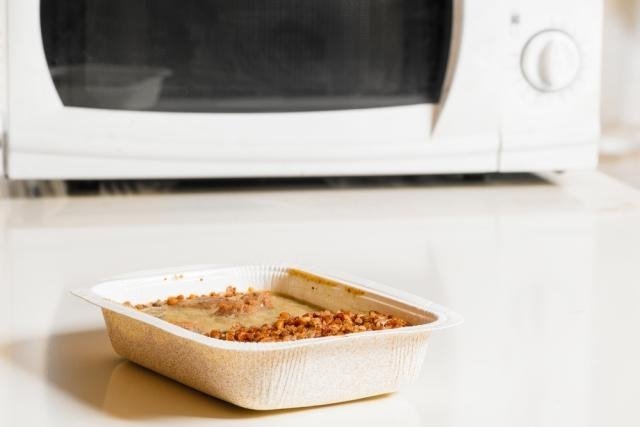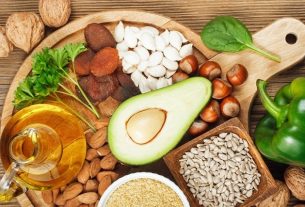Frequent consumption of ready-made foods can be harmful to your health, because the vast majority have high concentrations of sodium, sugar, saturated fat and chemical substances that improve and guarantee the flavor, in addition to increasing the food’s shelf life.
Thus, due to the amount of sodium, fat and preservatives, ready-to-eat foods can promote weight gain, increase blood pressure and increase the risk of heart and intestinal problems.

Health risks
Ready-made foods, which may or may not be frozen, can have several negative impacts on health, because the foods used in their preparation most often lose quality during the freezing process, in addition to the fact that preservatives and salt are usually added. to guarantee the flavor of the food and increase the shelf life.
Thus, some of the main risks related to the long-term consumption of frozen ready-to-eat foods are:
1. Weight gain
When you frequently consume frozen ready-made foods, you may experience an increase in weight and body fat, because most of these foods have a large amount of calories. Furthermore, as they are often not nutritionally rich, they do not guarantee satiety and, therefore, the person feels like eating more and more often throughout the day.
2. Increased blood pressure
The increase in blood pressure is normally related to the large amount of sodium present in ready-to-eat foods and seasonings, especially in lasagna, powdered soups, instant noodles and cube seasonings.
A 300g serving of lasagna, for example, has more than 30% of all the salt an adult can eat in a day, while a cube of meat seasoning has twice as much salt as an adult can eat in an entire day. Therefore, it is easy to overdo the salt when consuming processed products, which increases the risk of developing high blood pressure. Find out what the daily salt recommendation is.
See how to consume less salt by watching the following video:
3. Increased cholesterol
In addition to the large amount of sodium, ready-to-eat foods are also rich in saturated fat, which is mainly responsible for increasing bad cholesterol and reducing good cholesterol.
Thus, due to changes in cholesterol levels, there is also a greater risk of developing heart changes, such as heart attack, stroke and atherosclerosis, which is the clogging of blood vessels due to the presence of fatty plaques, in addition to increasing the chance of having fat. in the liver.
4. Intestinal problems
Due to the high content of chemical substances, such as preservatives, flavorings, colorings and flavor enhancers, frequent consumption of ready-to-eat foods can also lead to health problems such as stomach irritation, colon cancer, headache, tingling, kidney stones , nausea and reduced absorption of vitamins in the intestine.
Furthermore, food additives such as monosodium glutamate leave the palate addicted to the artificial flavor of food, which causes an increase in consumption of this type of product.
How to choose frozen food
Although frozen food is not the best choice for a meal, in some situations its consumption can be considered. Therefore, it is important to pay attention to the food label, giving preference to foods that have less fat and sodium. Other tips for choosing frozen food are:
- Avoid frozen foods with sauces or syrups;
- Do not defrost the entire boxremoving only the necessary portion;
- Avoid buying unhealthy frozen meals, even if they were prepared fresh.
Even in the case of vegetables and fruits, it is important to check the ingredients, as only the fruits and vegetables themselves should be mentioned, any other ingredients may indicate that they contain preservatives that could be harmful to your health.
Are frozen fruits and vegetables healthy?
Frozen fruits and vegetables are healthy as long as they have been frozen shortly after being harvested, as this way they can maintain their nutrients and health benefits. In fact, some fruits and vegetables, such as strawberries, peas or beans, lose vitamin C much more quickly when they are fresh than when frozen.
Find out how to properly freeze food to ensure its benefits:

Sign up for our newsletter and stay up to date with exclusive news
that can transform your routine!
Warning: Undefined array key "title" in /home/storelat/public_html/wp-content/plugins/link-whisper-premium/templates/frontend/related-posts.php on line 12
Warning: Undefined array key "title_tag" in /home/storelat/public_html/wp-content/plugins/link-whisper-premium/templates/frontend/related-posts.php on line 13



